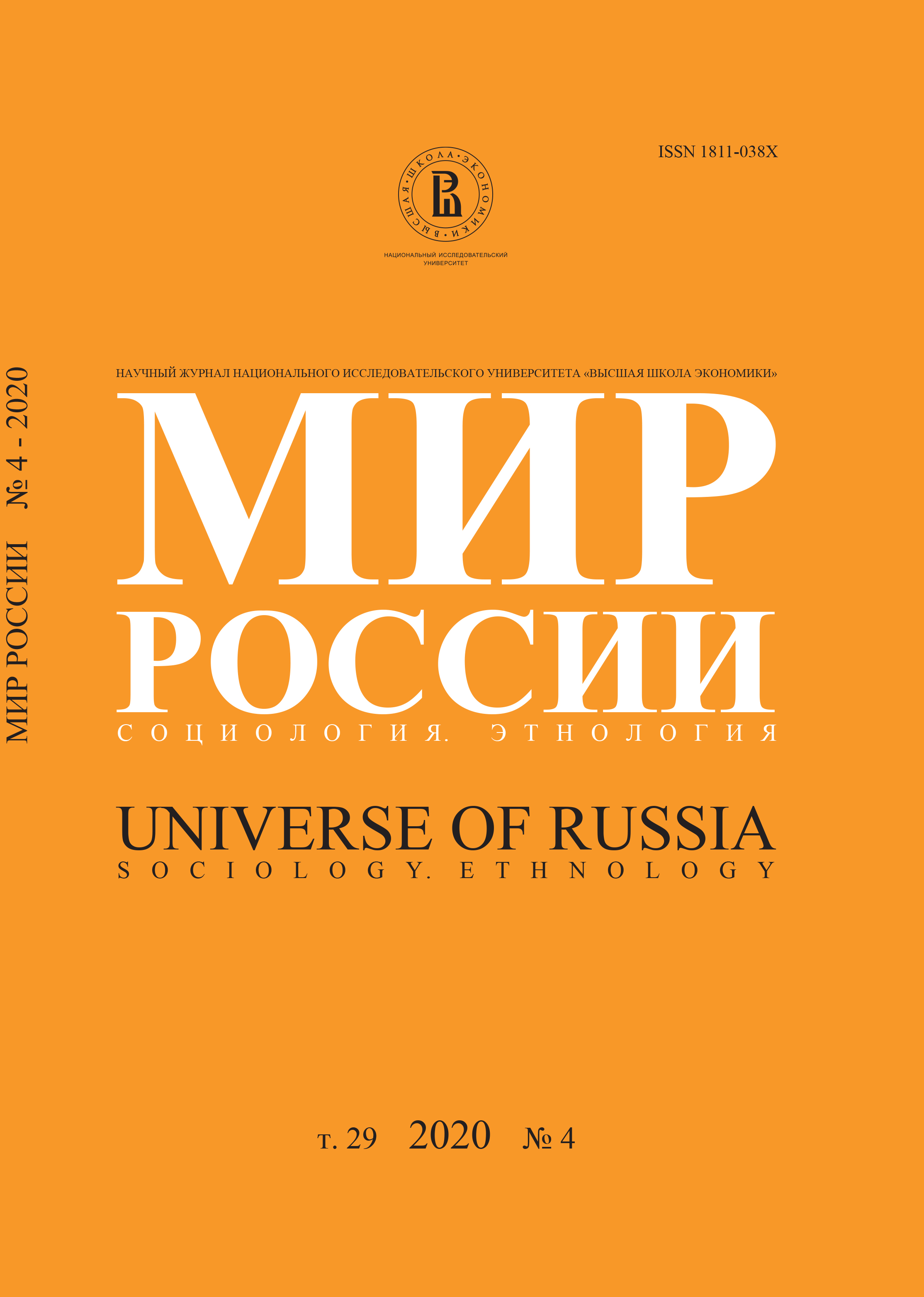The Western Middle Classes under Stress: Welfare State Retrenchments, Globalization, and Declining Returns to Education
Abstract
Citation: Chauvel L. (2020) The Western Middle Classes under Stress: Welfare State Retrenchments, Globalization, and Declining Returns to Education. Mir Rossii, vol. 29, no 4,
pp. 85–111. DOI: 10.17323/1811-038X-2020-29-4-85-111
Following the work of Pierre Bourdieu and Gustav Schmoller before him, the multipolarity of the middle classes between higher and lower, and between cultural and economic capitals
is well acknowledged. This old vision is useful to understand the “middle classes adrift” of the last 20 years in France and Continental Europe. The expansion of the “new wage earner middle class” of the 1960s to 1990s is now an old dream of the welfare state expansion of Western societies, and the European social structure now faces a trend of repatrimonialization”, meaning a U-turn towards a decline in the value of mid-qualified work and an expansion of the return to the inheritance of family assets. This paper addresses three main points. First, a new description of repatrimonialization is useful in the specific European context of middle-class societies. We need a redefinition of the system of middle classes (plural) in the context of the construction and decline of strong welfare states. Second, there are three ruptures in the social trends of the ‘wage earner society’ of the 1960s to 1990s. In this period, economic growth, social homogenization and social protection were major contextual elements of the expansion of ‘the new middle class,’ based on educational
meritocracy, the valorization of credentialed skills, and the expansion of the average wage compared to housing and capital assets (‘depatrimonialization’). After the 1990s, the rupture and reversal of these trends, with ‘stagnation’, ‘new inequalities’ and ‘social uncertainty’ as new trends, generated a backlash in the “middle class society”. Third, I analyze the demographic and social consequences of these new trends in terms of the shrinking of the middle classes in a context where the inheritance of assets and resources changed the previous equilibrium. Finally, I highlight the importance of addressing the problem of social stability when large strata of the middle class have less interest in the maintenance of the social order.






